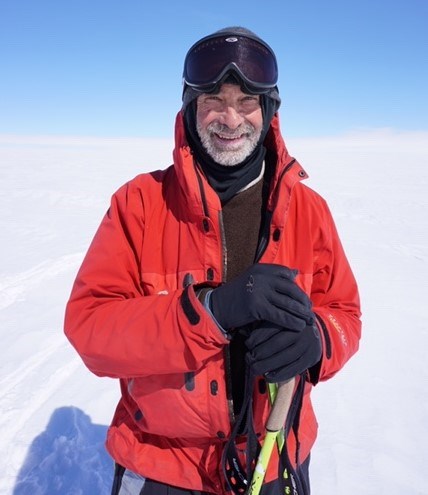THUNDER BAY — Sometime next month, Dale Shippam expects to do something no heart transplant recipient has ever accomplished.
The Thunder Bay man aims to climb to the summit of Mount Chimborazo in Ecuador — 6,310 metres above sea level — thereby becoming the first person with a donated heart ever to reach that altitude.
It's just the latest in a series of treks Shippam has taken over the years to help raise awareness and funds for Test Your Limits, an organization that supports cardiac research and care.
In 1999, the city firefighter was close to death when he received a heart transplant thanks to surgeons at Toronto General Hospital and Ontario's organ donation network.
The former marathon runner was able to return to work.
Now 71 and retired, he told TBnewswatch in an interview Wednesday "My health is fantastic. This transplanted heart has never skipped a beat."
After his recovery from the surgery, Shippam made it his life's mission to pay it forward by giving hope to others suffering from organ failure.
"It's good for people waiting for a transplant because they cans see that when they get their new heart or liver or lungs, they'll be able to continue their life and go back to work and raise a family. For everyone else, it shows the importance of getting on the donor registry. We're hoping that lots more people sign up."
Shippam added that "It's certainly a very tough time in a family when someone passes away, and it's a very tough decision to make, but if the person is registered as a donor it makes it much easier on the family. Over time, I've met so many families that donated...and without fail they all take something away from the fact that from such a tragedy, a little bit of positive news came out of it."
He's scheduled to leave Thursday for South America with a small climbing team that includes one of the people who saved his life nearly 25 years ago, Dr. Heather Ross, now head of cardiology at the Peter Munk Cardiac Centre.
They've had nine other excursions together over the years, including to the North and South Poles, and have helped raise approximately $4 million to date.
Mount Chimborazo, in the Andes, is "an interesting mountain," Shippam said, because "it's the closet you get to the Sun when you're on Earth. It's sort of the farthest away from the centre of the Earth. It's not the highest mountain, but because of the Equatorial bulge, it's closer to the Sun than the top of Everest."
Careful planning is required because of the high altitude and unpredictable weather on the inactive volcano, and the climb to the snow-and-ice-covered peak must begin in the dark when it's cooler and there's a reduced risk of rockfalls and avalanches.
"We're going to be on a glacier when we get to the top...We actually start climbing at midnight and climb through the night, so you get back off the mountain before the end of the next day. The heat builds up, I think, and softens everything up."
The expedition will take about three weeks so the group can get acclimatized by completing some challenging hikes in the mountains before making the push up Chimborazo.
Shippam expects to be back in Thunder Bay by mid-December.
